|
|
|
|
It would be great to say, the day before a federal election, that we’ve been treated to six weeks of respectful yet passionate debate about the future of the country, with politicians grilled about details on the big issues: climate change, the economy, health, education, equity, integrity, national security and so on.
Sadly, this hasn’t been the case. The election campaign has been a largely unedifying spectacle, with much attention on “gaffes”, nasty, negative ads from across the spectrum, and precious little meaningful policy discussion. After more than two exhausting years of the pandemic, it’s little wonder trust in politicians continues to flag.
And it’s also little wonder, writes Michelle Grattan, that many voters are finding it hard to know who to vote for, to cut through the noise and make an informed decision. But tomorrow night, the votes will be counted, and we will (eventually) know who will form the next government.
While there may be little policy difference between the major parties on many issues, Mark Kenny believes it would be a mistake to think the outcome therefore doesn’t matter. In fact, he argues this is the most important election since the “It’s Time” election of 1972, which ushered in the Whitlam government.
As election weekend unfolds, we will bring you the sharpest commentary from our academic experts. Led by Michelle Grattan and our election analyst Adrian Beaumont, our coverage will include reaction and analysis from Frank Bongiorno, Marija Taflaga, Shaun Carney, Denis Muller, Yee-Fui Ng, Stephen Duckett, Greg Barton, Camilla Nelson and many more.
We’ll bring you the results on our website as soon as they happen on Saturday night, and look out for a special election newsletter once it is clear who will form government.
And let’s hope that whoever it is, the weeks and months ahead bring us a calm, informed examination of the many serious issues that face this country, and a determination to actually do something about them.
|

|
Amanda Dunn
Section Editor: Politics + Society
|
|
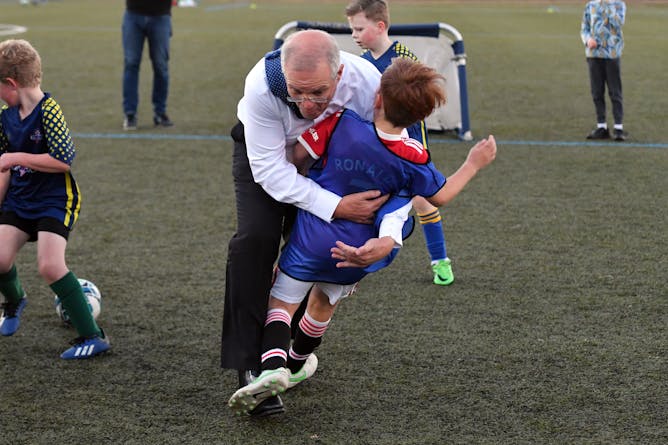
Michelle Grattan, University of Canberra
After a long and tedious campaign, leaders fight over the remaining undecided voters.
|
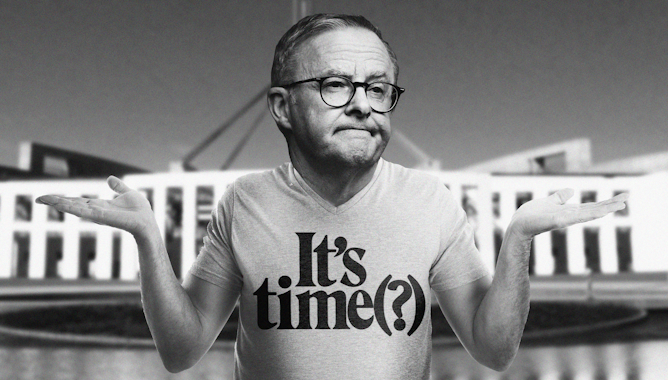
Mark Kenny, Australian National University
The 2022 election is the most important national choice to be put before voters since Gough Whitlam’s history-making ‘It’s Time’ campaign.
|
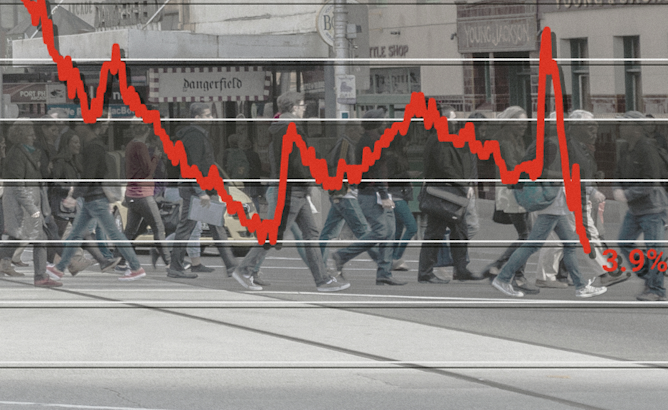
John Hawkins, University of Canberra
The share of the population in work has hit an all-time high as the share of the workforce underemployed has hit a 14-year low. The fresh low in unemployment will bring higher interest rates, and perhaps higher wages.
|

Alison Preston, The University of Western Australia
The latest data shows early access to super in the pandemic widened the retirement savings gap between men and women. Housing affordability is a serious problem, but depleting super isn’t the answer.
|

Samuel Wilson, Swinburne University of Technology; Melissa A. Wheeler, Swinburne University of Technology; Vlad Demsar, Swinburne University of Technology
Whoever forms Australia’s next government must work to reverse declining public trust in our institutions and leaders.
|
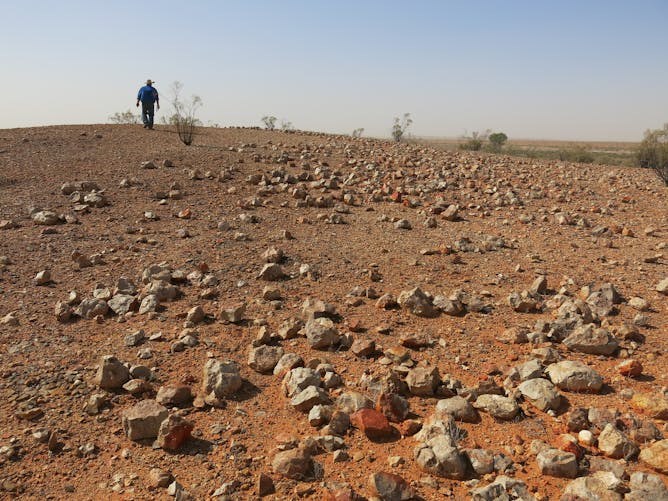
Tom Griffiths, Australian National University
The Debney Peace, negotiated over a 5-day ceremony on Mithaka Country, is nationally significant to 21st century Australia.
|
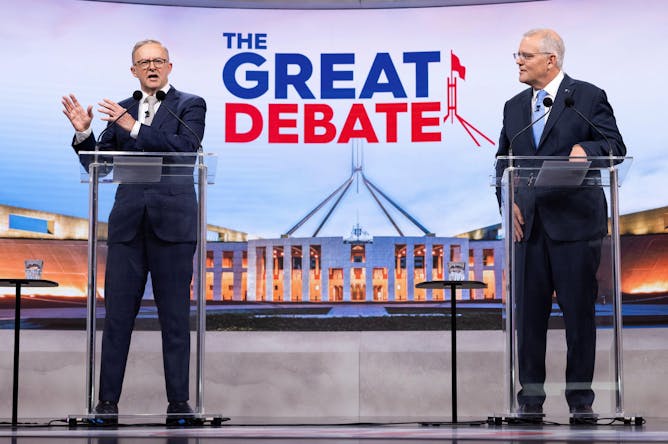
Gemma Ware, The Conversation; Daniel Merino, The Conversation; Michelle Grattan, University of Canberra
Australians head to the polls in federal elections on May 21. Your guide to what’s at stake. Listen to The Conversation Weekly podcast.
|
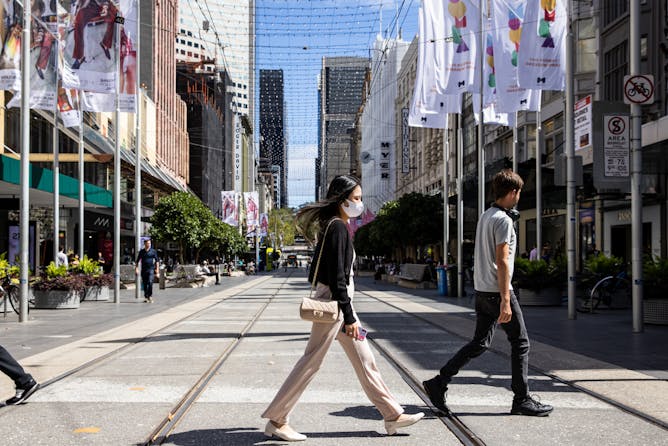
Margaret Hellard, Burnet Institute; Brendan Crabb, Burnet Institute; Dominic Delport, Burnet Institute; Nick Scott, Burnet Institute
We modelled the impact small reductions in transmission would have on COVID deaths. We found a 20% drop could save the lives of 500 Victorians this year, or 2,000 people nationally.
|
Politics + Society
|
-
Bhiamie Williamson, Australian National University; Francis Markham, Australian National University
Our new analysis shows Indigenous voters could play a decisive role in 15 marginal seats – including key battlegrounds in urban and regional Queensland, as well as NSW, WA and Tasmania.
-
Richard Shaw, Massey University; David Hall, Auckland University of Technology; Kate C. Prickett, Te Herenga Waka — Victoria University of Wellington; Michael P. Cameron, University of Waikato; Nina Ives, Auckland University of Technology; Stephen Hickson, University of Canterbury
Our experts weigh up the winners and losers in a budget that had to balance an immediate cost-of-living crisis with long-term ambitions for health and climate change.
-
Emily Foley, La Trobe University; Rebecca Strating, La Trobe University
Whoever wins on May 21, protecting Pacific workers in Australia must be a policy priority, as temporary migration will continue to rise post-pandemic.
-
Dani Larkin, UNSW Sydney; Eddie Synot, Griffith University; Emma Lee, Swinburne University of Technology; James Blackwell, Australian National University; Sana Nakata, The University of Melbourne
One of the recommendations from the 2017 Uluru Statement from the Heart calls for the establishment of a First Nations Voice to parliament, enshrined in the Constitution. This would ensure First Nations…
|
|
Health + Medicine
|
-
Camilla Hoyos, University of Sydney
A new study has found in those with cognitive decline, memory can be improved by treating sleep apnoea.
-
Wendy Bonython, Bond University; Bruce Baer Arnold, University of Canberra
An archaic law means many people with disability are not allowed to vote. Other countries are changing their rules and so should Australia.
-
Ben White, Queensland University of Technology; Lindy Willmott, Queensland University of Technology
Voluntary assisted dying is now legal, or will soon will be, in all six states. But we need enough doctors to put their hands up for training.
|
|
Science + Technology
|
-
Andrew Gunn, Monash University
There are many bodies in the solar system we can’t easily access. But observations of their winds and sediments reveal a surprising amount.
-
Lucas Cernusak, James Cook University; Susan Laurance, James Cook University
A 50-year experiment shows warmer, ‘thirstier’ air may have cut the lifespan of Queensland’s tropical trees in half since the 1980s.
|
|
Environment + Energy
|
-
Chris Hay, The University of Queensland; Christina N. Zdenek, The University of Queensland
Most people try their best to avoid snakes. This snake photographer couple spends their free time searching for them.
|
|
Arts + Culture
|
-
Ben Eltham, Monash University
With plans to trial a universal basic income for artists and push streaming platforms to invest in local content, The Greens have a big-picture blueprint for cultural policy.
|
|
Business + Economy
|
-
Richard Shaw, Massey University; David Hall, Auckland University of Technology; Kate C. Prickett, Te Herenga Waka — Victoria University of Wellington; Michael P. Cameron, University of Waikato; Nina Ives, Auckland University of Technology; Stephen Hickson, University of Canterbury
Our experts weigh up the winners and losers in a budget that had to balance an immediate cost-of-living crisis with long-term ambitions for health and climate change.
|
|
| |
Featured jobs
|
|
|
| |
| |
| |
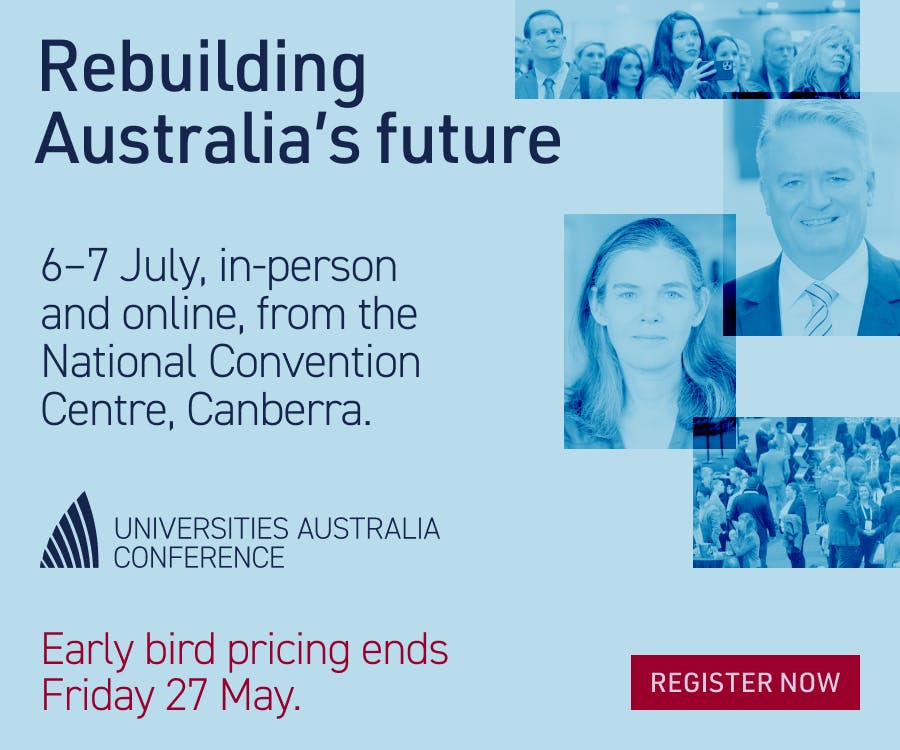
|
| |
| |
| |
Featured Events, Courses & Podcasts
|

|
— Victoria, Australia — The Conversation Weekly Podcast
|

|
— Victoria, Australia — The Conversation
|

|
— Ian Hanger Recital Hall, Queensland Conservatorium, 140 Grey Street , South Brisbane, Queensland, 4101, Australia — Griffith University
|

|
— Monash University Clayton and Online Webinar, Clayton, Victoria, 3168, Australia — Monash University
|
|
|
|
| |
| |
| |
| |
| |
|
|
|
|
|
|
|